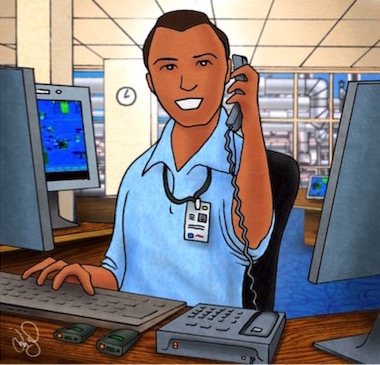Let us think of controllers plying their craft with the goal being ideal operations. They go about their normal duties while looking for things that are not there or things that are unusual or abnormal. Consider how many times there are references to abnormal operations in the CRM regulations and inspection questions. The term “abnormal” is found 23 times in the inspection questions.
Every craftsman searches for what is not there to practice his craft.A builder looks for the rotten hole where the roof caved in. A water-carrier picks the empty pot. A carpenter stops at the house with no door. – Rumi (1207-1273)
It is more difficult monitoring a pipeline for what is not there than it is to see a hole in a roof, an empty pot, or a house with no door. During a work shift, there are constant searches and checks for what is not there in addition to what is there. A controller has to be alert, attentive, and aware using tools the company provides. Situational awareness is critical. That is why it is important to have “adequate information” from SCADA and related systems, procedures, and the communications from other people about the current state of operations and about any upcoming changes.
It is now about four years since the CRM regulations went into effect. At an API meeting, I heard someone from PHMSA state that the intent of CRM is to:
- Create an environment to help assure controllers will be successful in maintaining pipeline safety and integrity
- Assure that companies are addressing fatigue risks in the control room
- Verify that procedures, systems and equipment are well thought out, and function as designed
The beginning of a new year is a good time to ask if your company’s CRM plan is meeting that stated intent. The goal should be to have an ideal control room staffed with ideal controllers, ideal managers and ideal support personnel. Constantly practice your craft.
I sometimes ask controllers to describe an ideal controller in terms of characteristics, qualities, traits, and/or behaviors. It could be worthwhile to create your own list and to discuss your list with your coworkers.
The second question I ask is, “Are you an Ideal Controller?”
We all understand the potential impact of pipelines on public safety, and I know that controllers take their responsibilities seriously. We have worked in over 100 control rooms since 2004. I see how controllers do their jobs. Yet, it is good to be reminded occasionally that pipeline control presents challenges to human beings because we are looking at representations on displays of what is happening on the pipeline systems and we have to interpret that information accurately and in a timely manner. The consequences of errors and mistakes can be threatening to people. Have a safe 2015!




